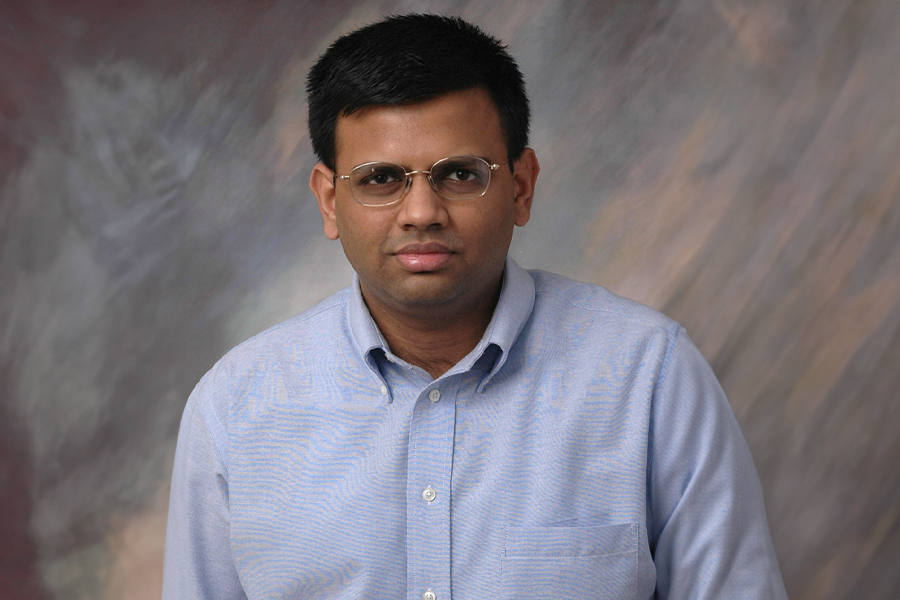Purdue Prof. Sanjay Rao awarded NSF grant to enhance networking for research

The National Science Foundation’s (NSF) Office of Advanced Cyberinfrastructure has recently awarded Purdue University two new Campus Cyberinfrastructure (CC*) grants. The two awards, totaling nearly $1.5 million, will directly address and enhance the cyberinfrastructure at Purdue University.
Sanjay Rao, a professor in the Elmore family School of Electrical and Computer Engineering is the Principal Investigator for one of the projects. CC* awards are given to teams who are seeking to partake in coordinated campus-level cyberinfrastructure improvements, innovation, integration, and engineering for science applications and distributed research projects. There are five different program areas that CC* awards support. Rao’s project falls under Area 3, Network Integration and Applied Innovation.
The project, titled “Programmable Network Testbed for 400 Gbps Science DMZ,” is led by Rao. Erik Gough, a Senior Research Scientist at RCAC, is a co-PI for the project and will lead the testbed deployment and its integration into RCAC’s network infrastructure. Prof. Vishal Shrivastav of ECE and Professor Muhammad Shahbaz of the Department of Computer Science (CS) will also serve as co-PIs on the project.
Rao, Shahbaz, and Shrivastav (who, along with other faculty in CS and ECE, have founded the PurNET Lab to synergize computer networking research across campus) are leaders in programmable networking, an exciting new area of research that enables network architects to program operations to be performed on each data packet. The research can enable next-generation networks that are agile and can respond in real time (e.g., to thwart cyber-attacks and to support low-latency applications).
“I am excited to collaborate with RCAC and Purdue IT”, says Rao, “as it enables networking researchers to tackle high-impact real-world problems, and to validate futuristic research ideas at scale. The unique PRONET testbed will cement Purdue as one of the top universities for programmable networking research.”
The network integration project will design, implement, and deploy PRONET, a testbed to support cutting-edge programmable networking research for managing Science DMZ traffic. The current data storage and transfer needs of science drivers such as high energy physics far exceeds regular campus traffic. As these needs continue to grow, monitoring and managing research networks becomes ever more challenging. PRONET will enable (i) real-time monitoring of Terabits per second of traffic for tasks such as security and performance; (ii) enable complex processing at network line rate to support both current Science DMZ use cases (e.g., detect security attacks) and emerging ones (e.g., process IoT traffic); and (iii) validation of programmable networking research on real-world traffic. The project will influence future Science DMZ designs by demonstrating use cases of programmable networking in these environments and will drive the adoption of programmable networking, leading to more secure, reliable, and agile network environments. This project will also aid in workforce development by involving students—both graduate and undergraduate—and the PIs will work to actively recruit students from underrepresented groups.
Source: Purdue awarded two NSF grants to enhance networking for research
